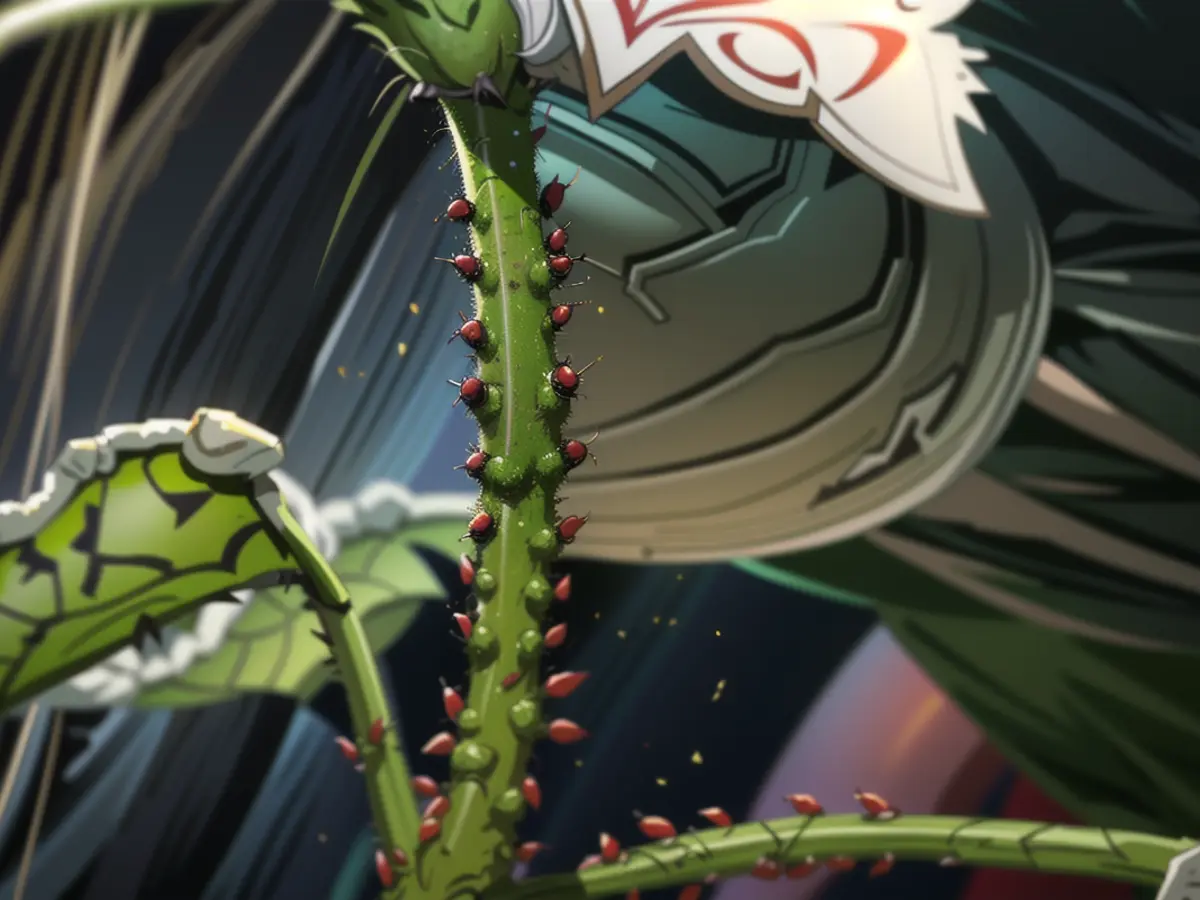Small insects that can cause major damage
Tiny but troublesome pests, aphids affect various plants and can cause extensive damage if not managed properly. Discover how to keep these little monsters at bay in this guide.
Aphids, similar to snails, are among the most prevalent plant pests faced by gardeners worldwide, and they can be quite challenging to deal with. Instead of resorting to chemical warfare, there are numerous eco-friendly alternatives to control these pain-in-the-neck critters.
The consequences of aphid infestations
Aphids feast on the sap from plant leaves and branches, resulting in a range of issues: leaves might curl and distort, plant growth is hindered, and the worst-case scenario - the plant can even perish. To add insult to injury, when aphids feed, they produce sticky honeydew which fosters the growth of sooty mold, a dark fungus that cloaks the leaves and further restricts photosynthesis.
Diversity and susceptible targets
Despite their diminutive size, aphids can wreak havoc in gardens and agricultural settings. With more than 4,000 species, the most common ones occur in green, black, and red hues. While they may be small, their impact should not be dismissed.
Certain plants, such as roses, peaches, and specific ornamentals like dahlias, are highly susceptible to aphid attacks. On the bright side, there are also plants that act as natural aphid deterrents. Species like garlic and onions weaken aphids with their pungent scents, whereas lavender, basil, thyme, and rosemary repel aphids due to their strong aromas.
Creating aphid-free sanctuaries with traps and strategies
Nasturtium, a pretty flower, has a unique role as a trap plant. It lures aphids, sparing other plants in your garden. This strategy works particularly well in mixed gardens, strategically positioning nasturtium to protect more vulnerable species. However, be warned: if nasturtium becomes engulfed by aphids, it must be closely monitored and treated, preventing aphid transmission to other plants.
Unleashing nature's troopers: Lady beetles and other natural remedies
Encouraging predators like lady beetles, fly larvae, and flower flies is a smart approach to managing aphids. These helpful creatures feed on aphids, keeping their populations in check naturally. A practical home remedy is introducing potassium soap water. Mix a mild solution of water and soap and spray it on your plants to annihilate aphids without harming the environment or your beloved greenery.
Get crafty with DIY aphid-combating elixirs
For those with a penchant for experimentation, DIY sprays can singly combat aphids. A widely used recipe combines garlic, onion, cayenne pepper, and water. Dissolve the ingredients with heat, cool them, filter them, and combine them with a small quantity of liquid soap or detergent. The resulting mixture is a powerful weapon against aphids.
Prevention: The Ultimate Shield
Yet, prevention is the key. Regularly inspect your plants, maintain a spotless garden, and cultivate plants that naturally repel aphids. Remove weeds and dead plant matter to minimize aphids' hiding spots.
Chemicals: Save them for the last resort
Use chemicals as a final option when other tactics fail, as they can disrupt the environment and harm beneficial insects.
Read also:
Legal considerations should be kept in mind when using any chemical pesticides to combat aphids, as some may be harmful to the environment and beneficial insects. In some regions, certain pesticides may be restricted or banned due to nature conservation laws. (Legal issues, Chemicals, Nature conservation)
Botanical knowledge can help gardeners choose plants that are less appealing to aphids, reducing the need for chemical interventions. Understanding plant biology and identifying natural aphid repellents can go a long way in creating an aphid-free garden. (Botany, Plants, Allergies)
Real estate advisors might recommend potential homebuyers to inspect the property's outdoor spaces for signs of aphid infestations, as unaddressed aphid issues can lead to damage to plants and decreased property value. (Real estate, Consumers, Animals)
While dealing with aphids, it's essential to consider the well-being of not only the plants but also the animals that live in or visit the garden. Sprays like potassium soap water can be an effective aphid repellent without harming beneficial insects and wildlife. (Advisor, Animals)







